Different types of Holly trees and scrubs will add lots of colors to your garden, due to their evergreen leaves and vibrant fruit. Holly is a hardy deciduous shrub that can be grown in most climates, although it does best in warmer areas with full sun.
It is an excellent choice for the landscape because of its ability to withstand drought conditions.
The holly tree has been used as an ornamental plant since ancient times and was originally native to Europe. Today there are many different varieties available depending on the climate where you live.
In this article, you will discover a broad range of holly plants that you could grow in your own garden.
1. Carolina Holly (Ilex Ambigua)
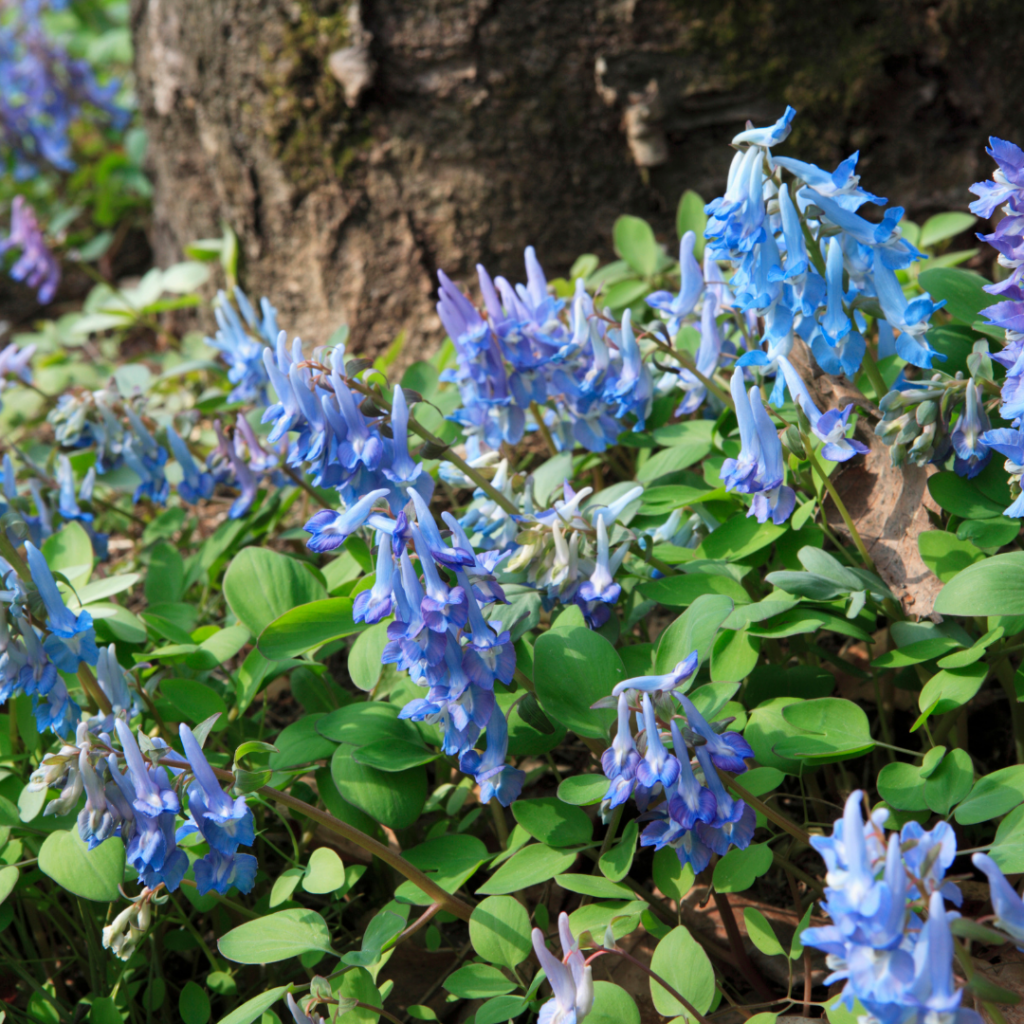
Carolina holly is one kind of evergreen shrub. The bright red berries are produced during the fall, which falls off in the winter. Great to plant in zones 7 to 9.
2. Catberry (Ilex Mucronata)
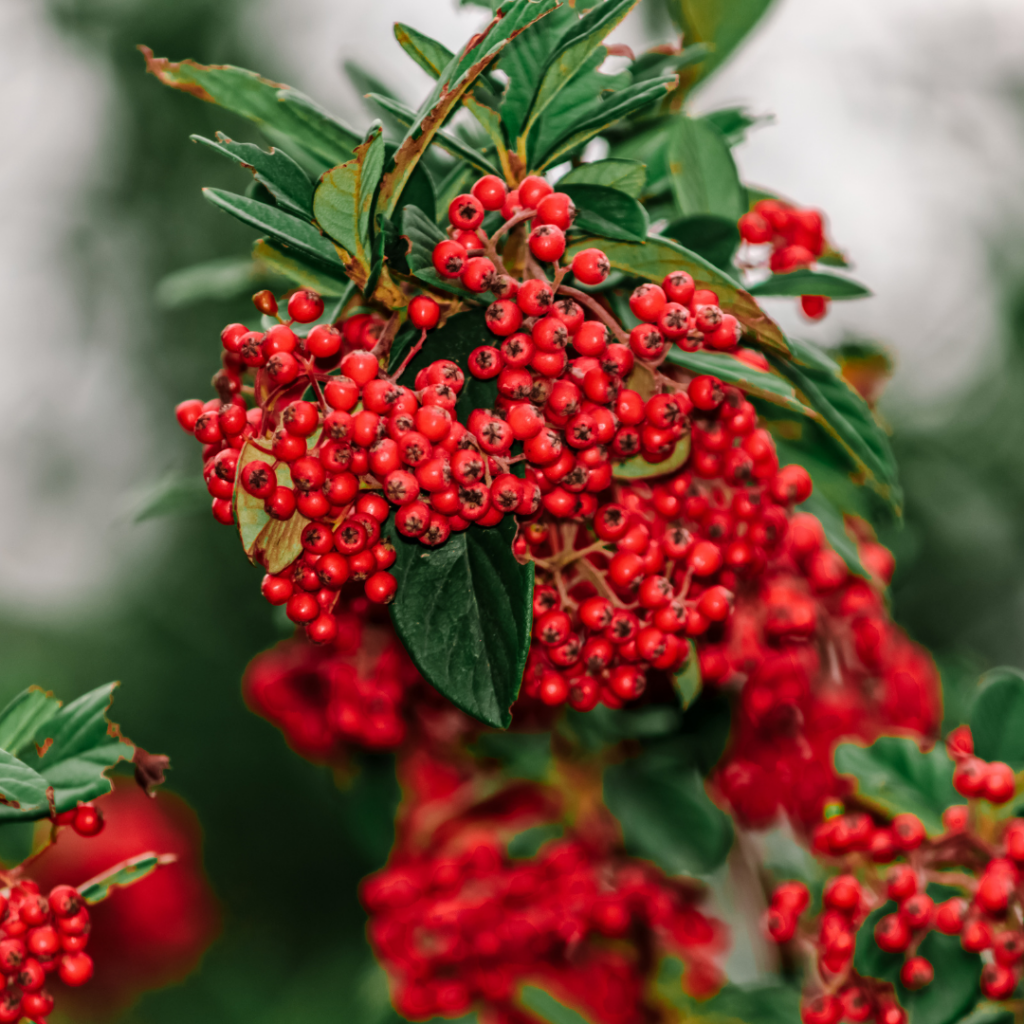
A catberry is an evergreen shrub or small tree native to eastern North America. Catberries grow in moist areas, and produce red berries at the ends of long stalks. These fruits are a favorite of many birds.
3. Chinese Holly

A great choice for a drought-tolerant landscape. The Chinese holly is an evergreen shrub or small tree, named due to the shape of the leaves of this plant. Native to China or Korea and can be grown in zones 7 to 9.
4. Dahoon Holly (Ilex cassine)
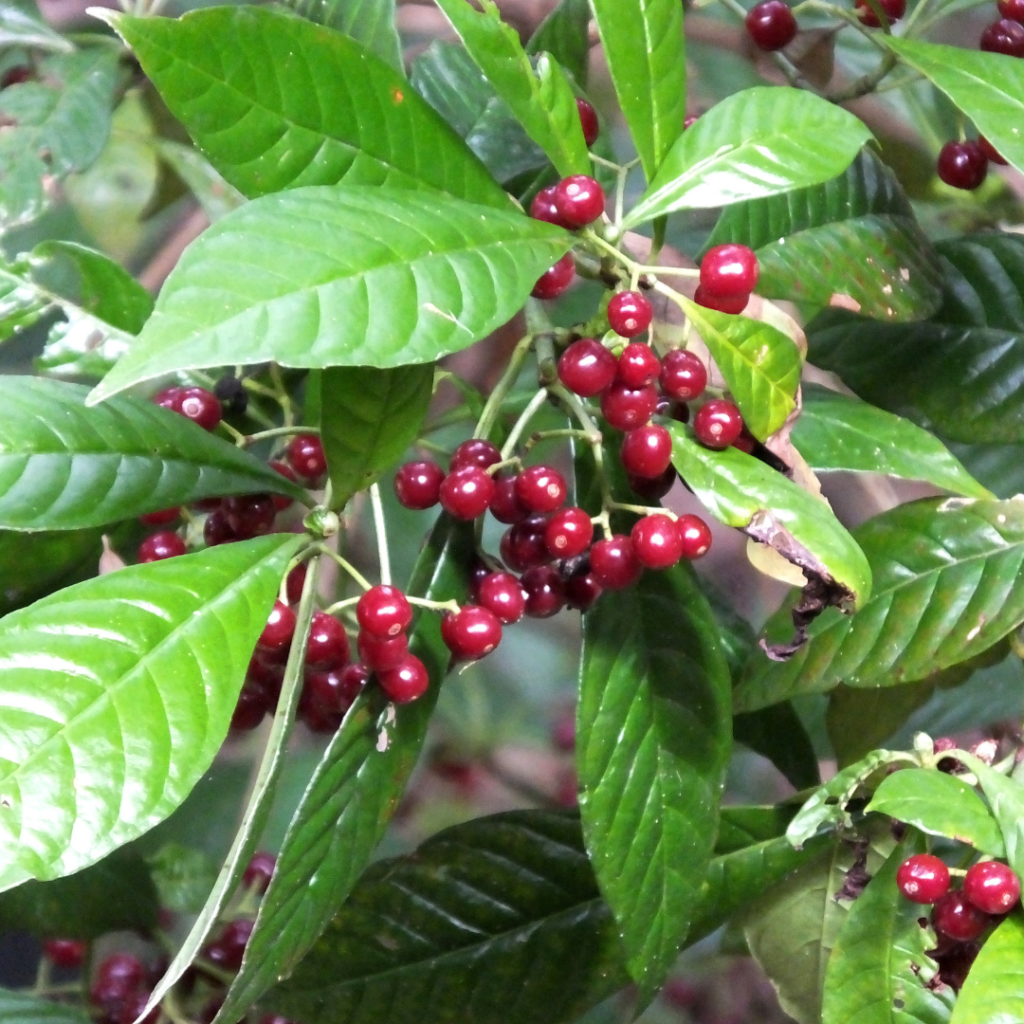
Dahoon hollies grow around swamps and wetlands. They’re very hardy plants and can tolerate some amount of water. Their leaves are covered with tiny hairs that help them trap moisture.
They’re native to the Caribbean, but they’ve spread throughout much of North America. USDA growing zones 5 to 10.
5. English Holly (Ilex aquifolium)
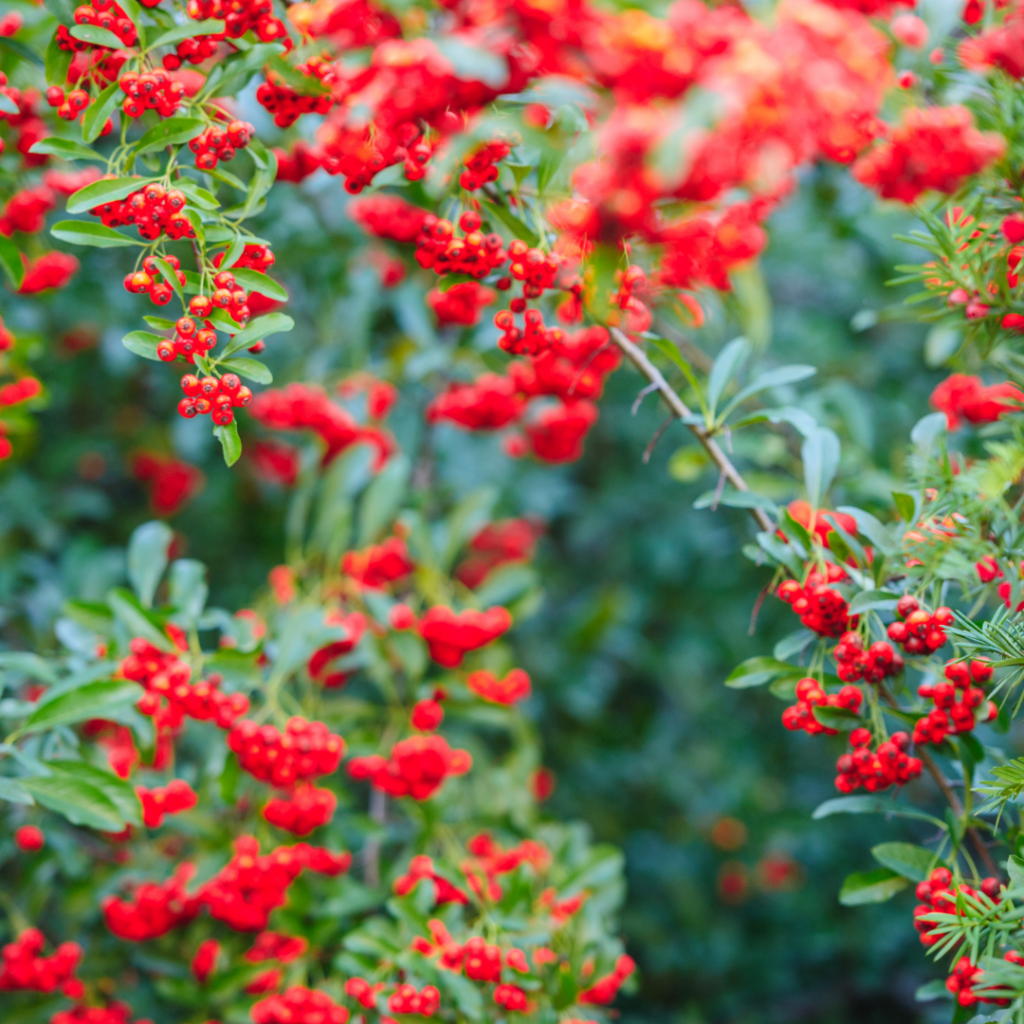
Holly is an evergreen shrub native to Europe. It is also known as ‘Christmas bush’ because of its use in decorating Christmas trees. It is also called common holly, European holly, and Oregon holly. Grows to around 15 to 50 feet and enjoys full sun to partial shade. USDA zones 7 to 9.
6. Finetooth Holly (Ilex serrata)
The finetooth holly is a fast-growing evergreen shrub that grows up to 20 feet tall. The leaves have sharp edges and look like needles.
This plant can have fruit that is either red, yellow, or white depending on the cultivar of the plant. USDA zones 5 to 8.
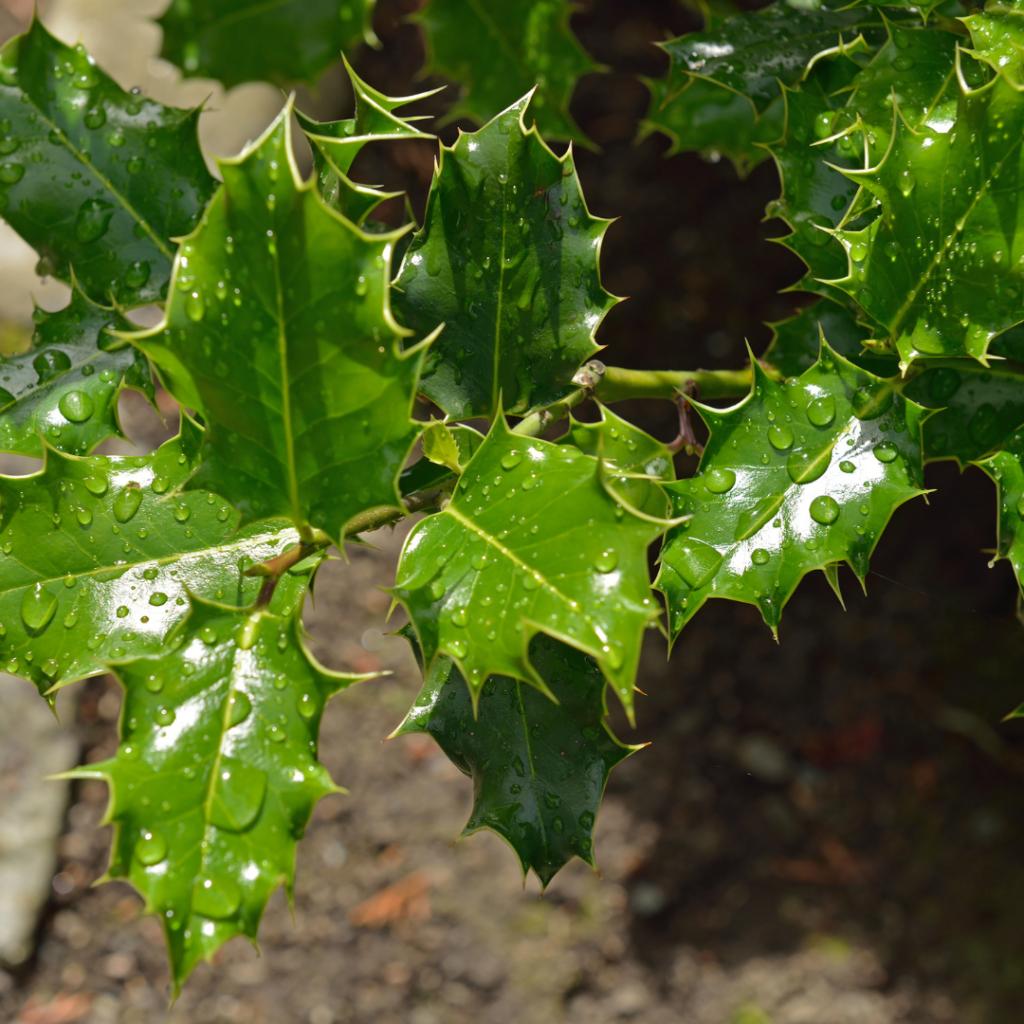
7. Hawaiian Holly (Ilex anomala)

This evergreen shrub is native to Hawaii. It’s usually found growing along streams and rivers. The fruit produces a purple to black color, and the Theridion grallator spider plant likes to live on this holly plant. USDA zones 11 to 12.
8. Japanese Holly (Ilex crenata)
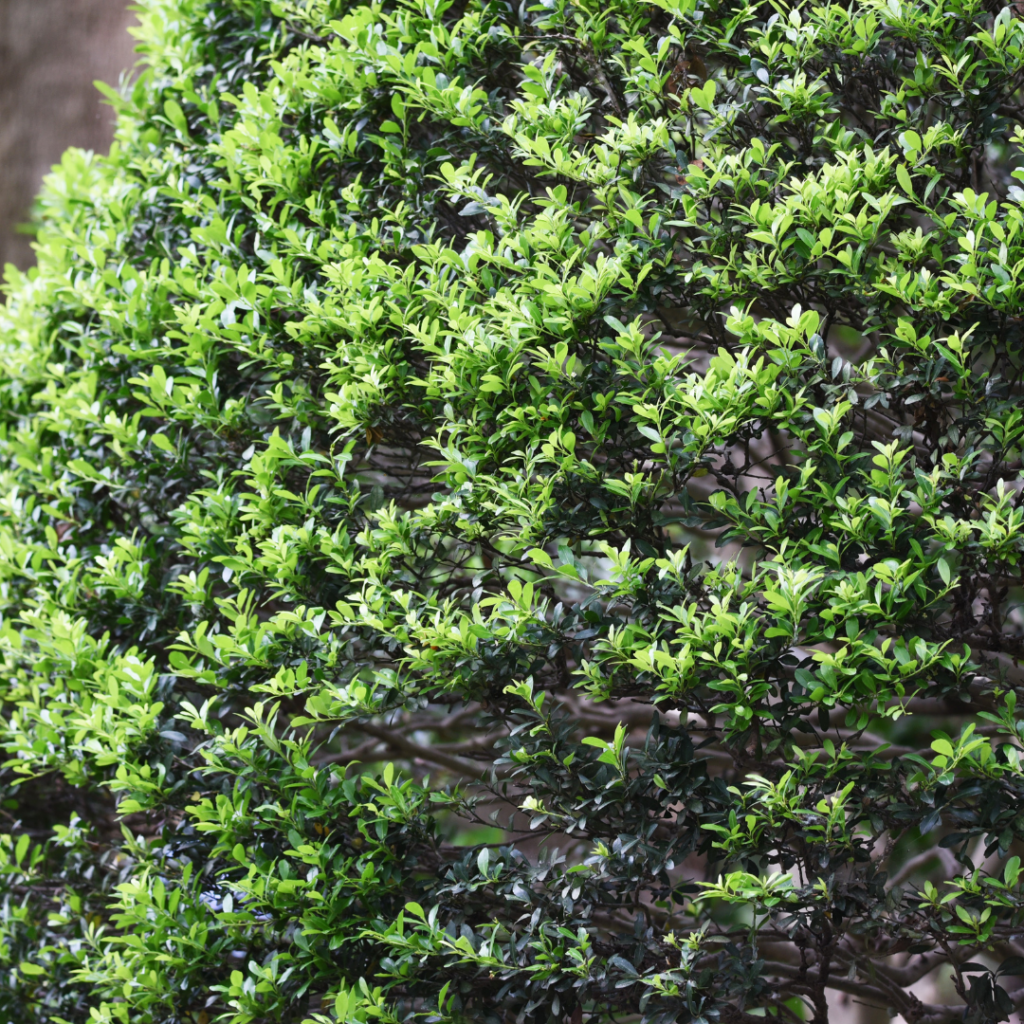
Japanese hollies are deciduous shrubs that grow from 3 to 10 feet tall. The leaves are dark green and glossy, while the fruit is black. Japanese hollies prefer full sun to light shade. USDA zones 5 to 8.
9. Spreading Holly (Ilex opaca)
Spreading hollies are evergreen shrubs that grow up to 25 feet tall. The leaves resemble those of other hollies, but they are more rounded and not pointed. Spreading hollies require full sun to part shade. USDA zones 4 to 9.
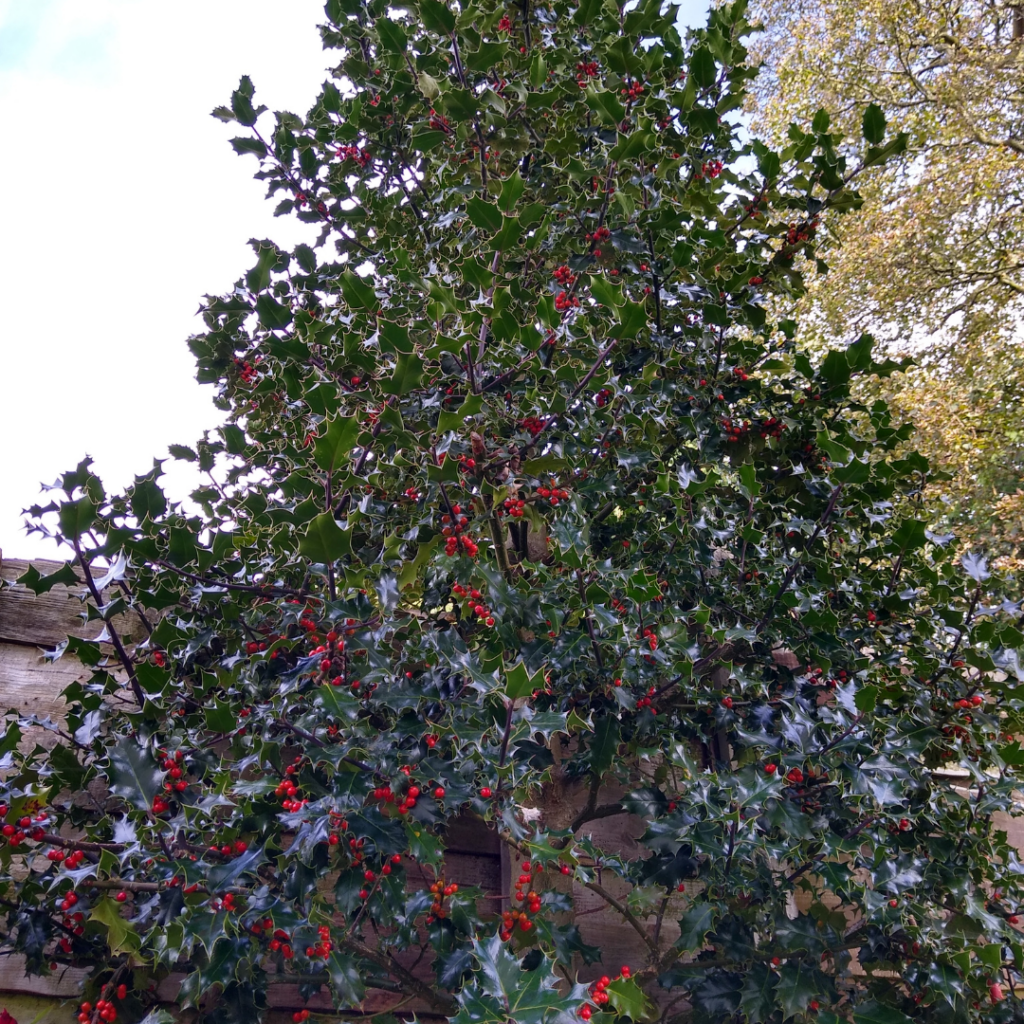
10. Belgica Aurea (Ilex x altaclerensis)
Belgica Aurea is an attractive holly plant to look at in your garden. It has thin dark green leaves with a yellow border.
These leaves can grow to around 10 cm in length. Overall, it is a fast-growing plant, which can produce red berries.
RELATED: Brown Trees: Everything You Need To Know About Them
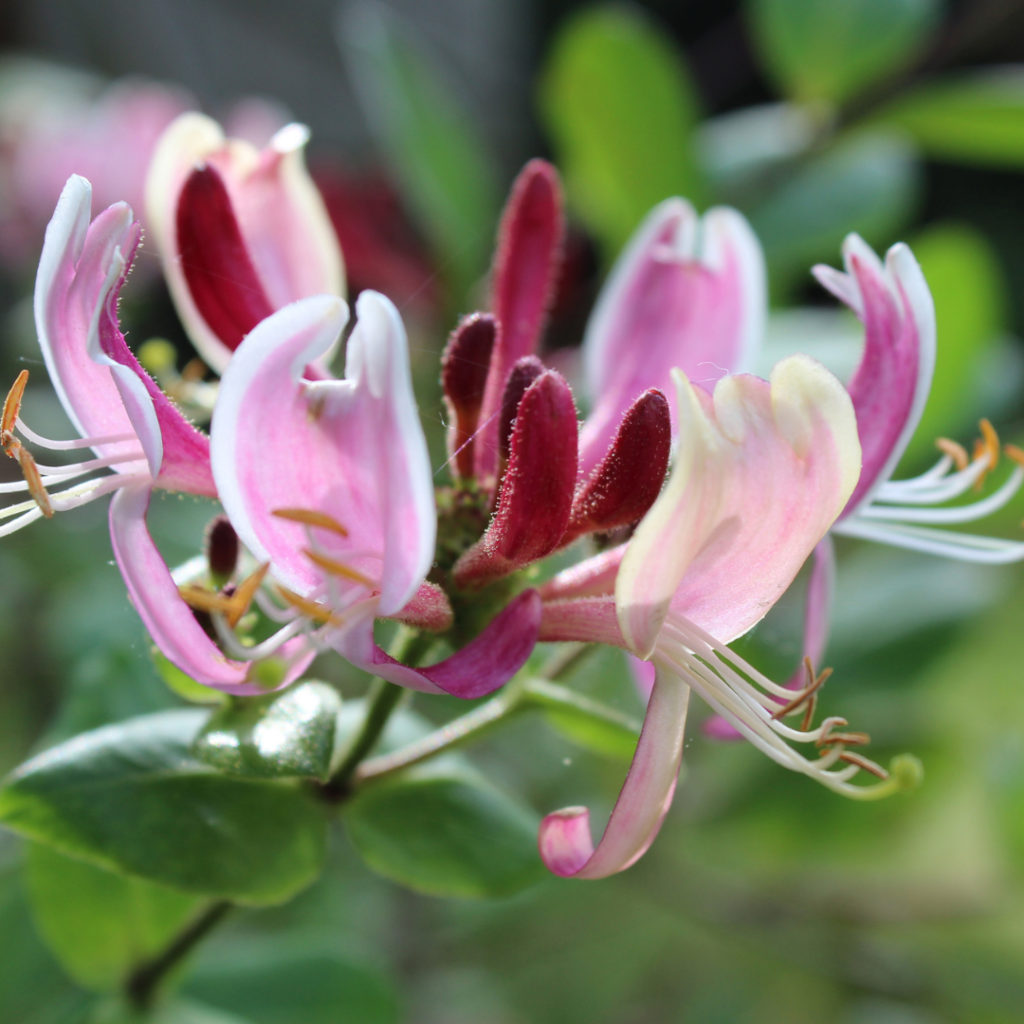
11. Longstalked Holly (Ilex pedunculosa)
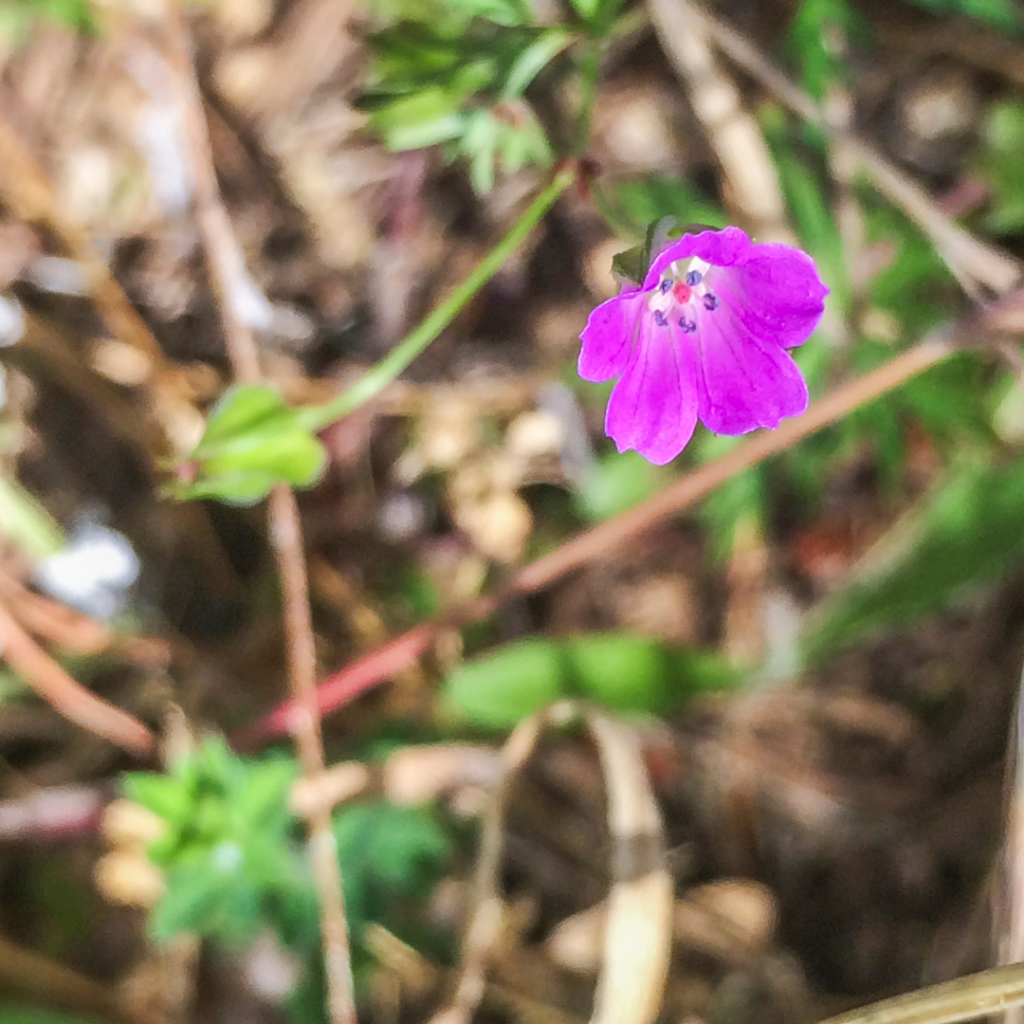
The longstalk holly is an evergreen shrub or small tree that grows about 30 feet high. Its leaves are oval-shaped and grow in clusters.
The fruit will add lots of color to your garden during the colder months of fall and winter. Long Stalked hollies need full sun to part shade and thrive in well-drained soil. USDA zones 5 to 8.
12. Mountain Holly (Ilex montana)

The mountain holly is a deciduous shrub or small tree that grows between 5 and 40 feet tall. The leaves of this plant are similar to those of other holly except they are smaller and rounder. Mountain hollies need full sunlight to part shade and do best in moist soils. USDA zones 5 to 9.
13. Lusterleaf Holly (Ilex latifolia)
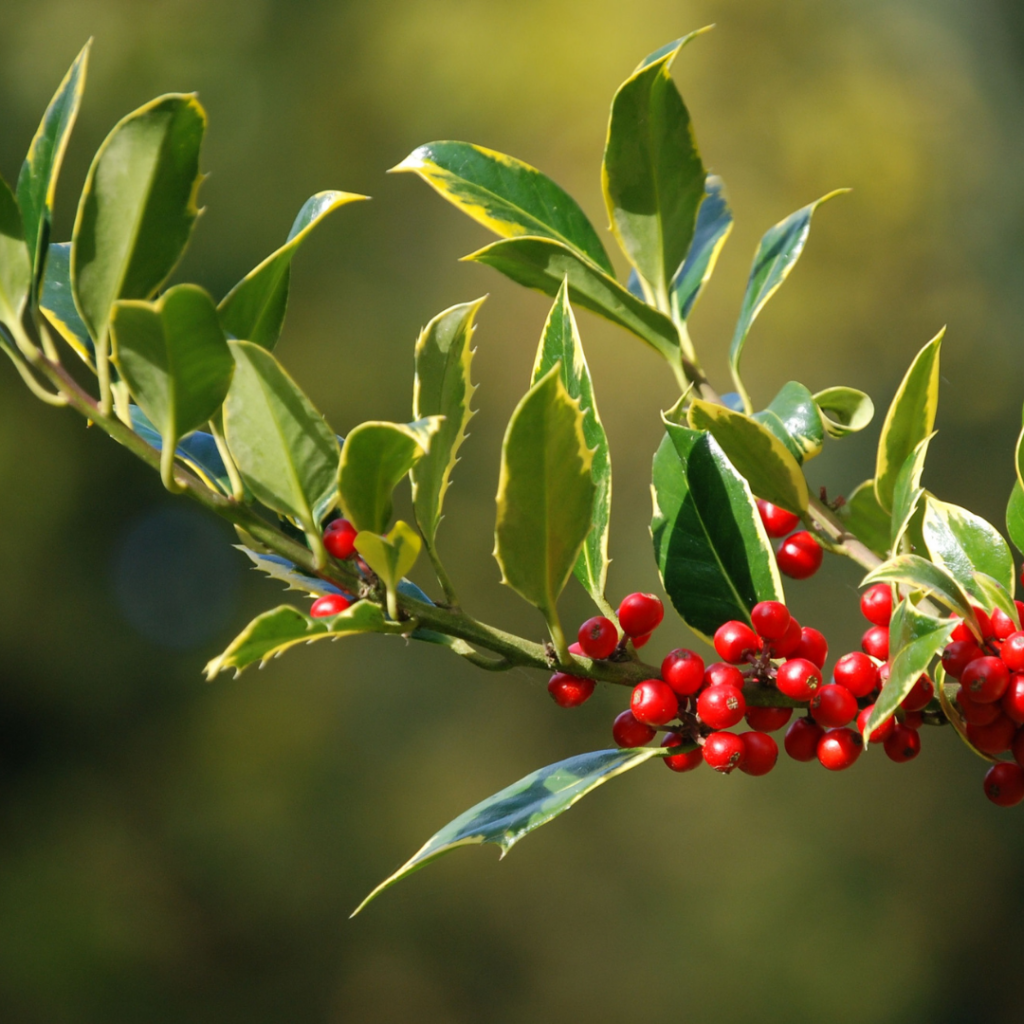
The lusterleaf holly is an ever-growing shrub that grows up to 60 feet tall. The leaves grow in pairs and are attached at their base, typically used to brew tea in China.
The berries aren’t very vibrant, but still add color during the winter months. Lusterleaf hollies prefer full sunlight to part shade. USDA zone 7 to 9.
14. Sargent Holly (Ilex sargentii)
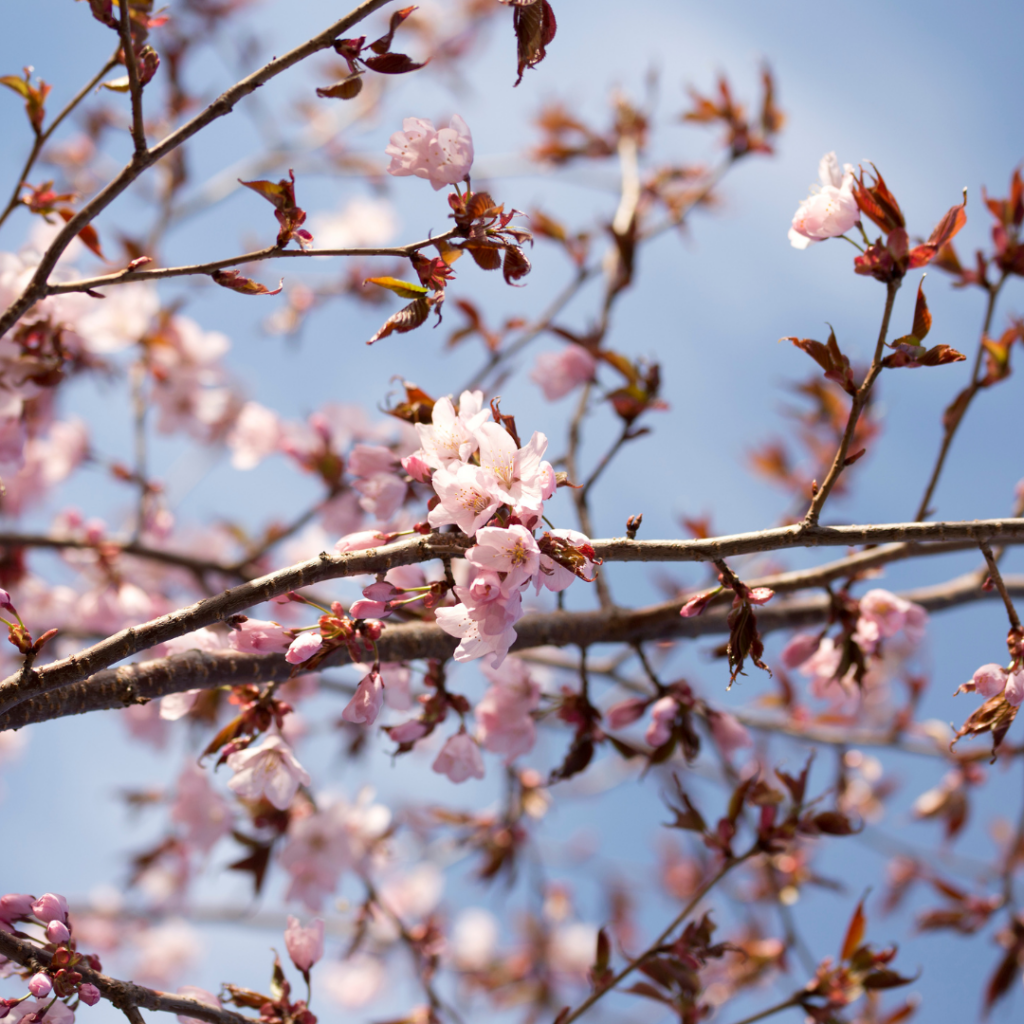
The Sargent holly is a small tree that grows up to 35 feet tall. The leaves look like those of other holly, but they are larger and more rounded. Sargent hollies need full sunshine to part shade and do well in moist soils. USDA zone 5 to 9.
15. Myrtle-Leaved Holly (Ilex myrtifolia)
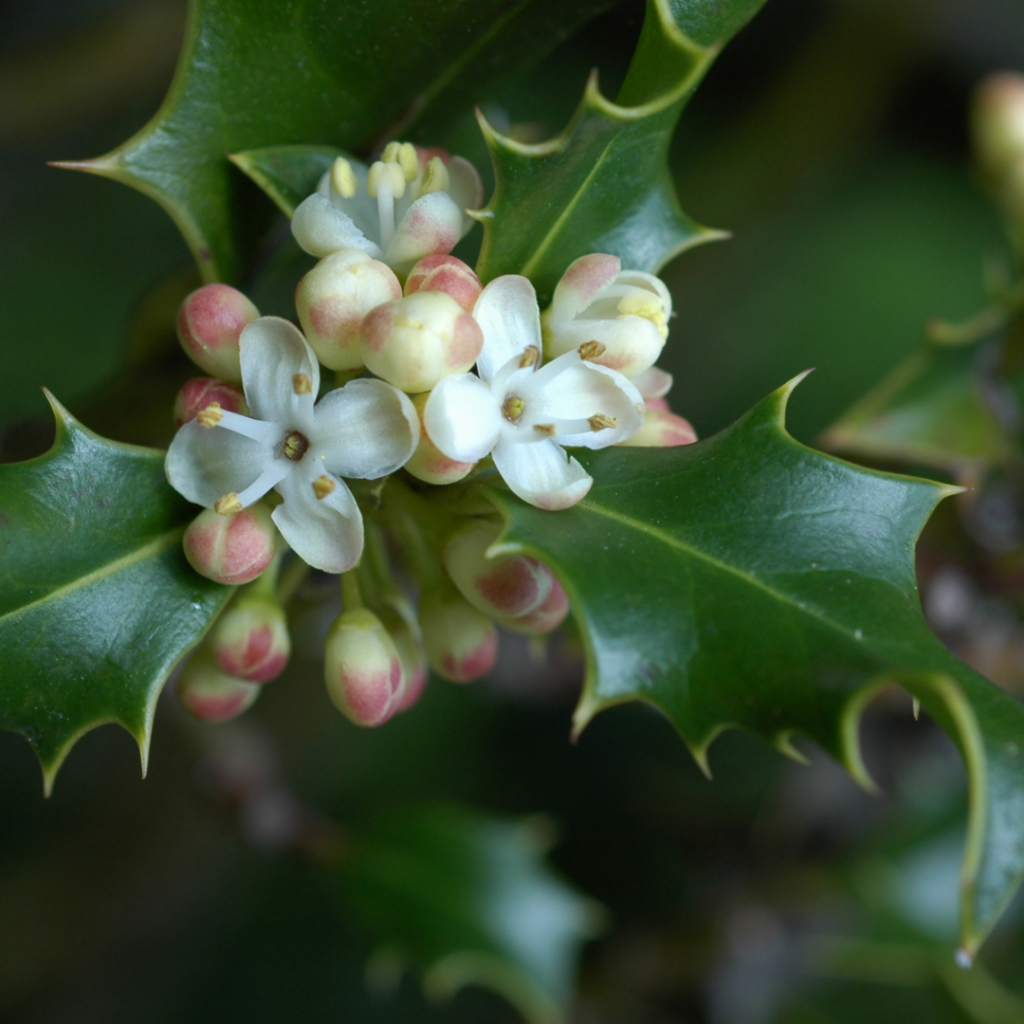
The Myrtle-leaved holly can grow up to 25 feet tall. The leaves are dark green and shiny, but spineless. The berries are bright red and add color to the landscape during the winter months.
Myrtle-leaved hollies need full sunlight to part shade and do better in moist soils. USDA zones 7 to 10.
16. Blue Princess Holly
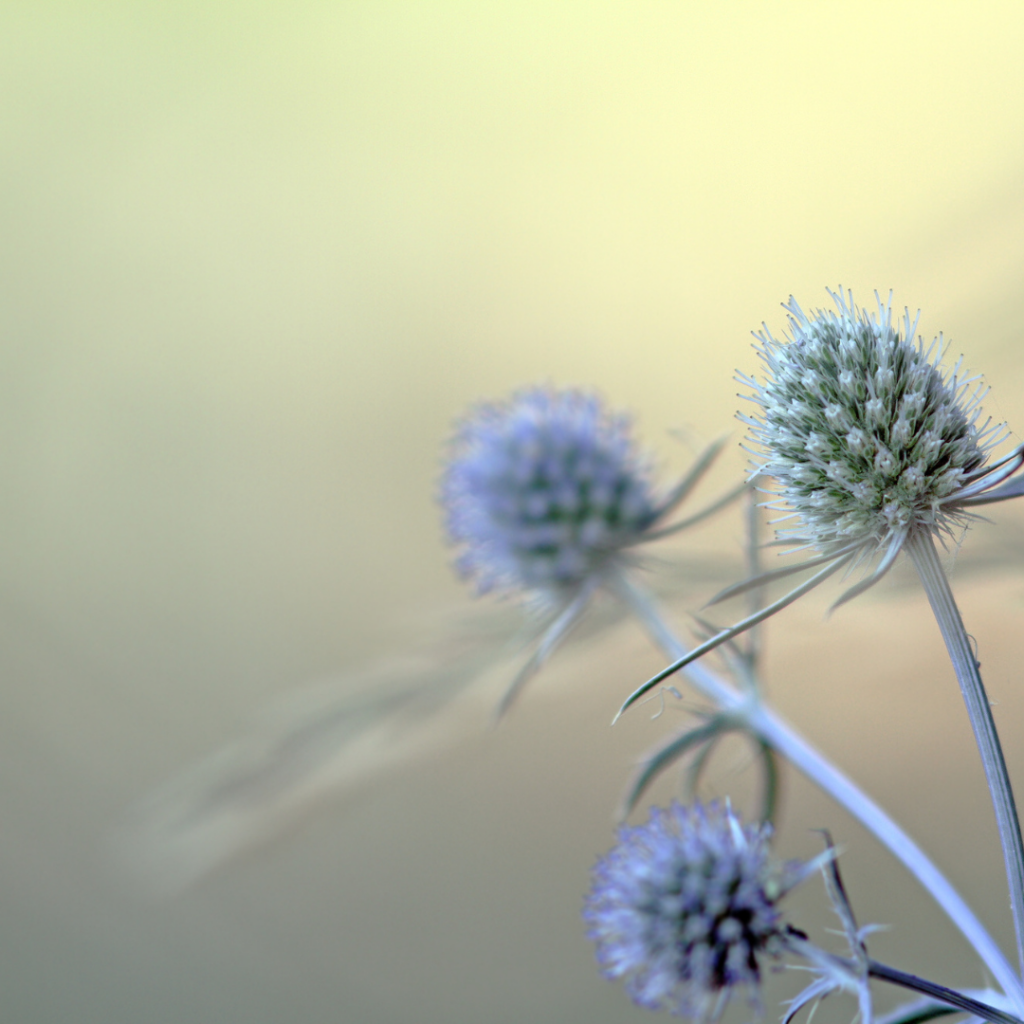
This type of holly is part of the blue holly, and has dark green yet glossy leaves. Flowers will be seen to bloom during the spring, alongside brightly colored red fruit which grows on purple stems.
They can grow to around 15 feet tall and enjoy full sun to partial shade.
17. Yaupon Holly (Ilex vomitoria)
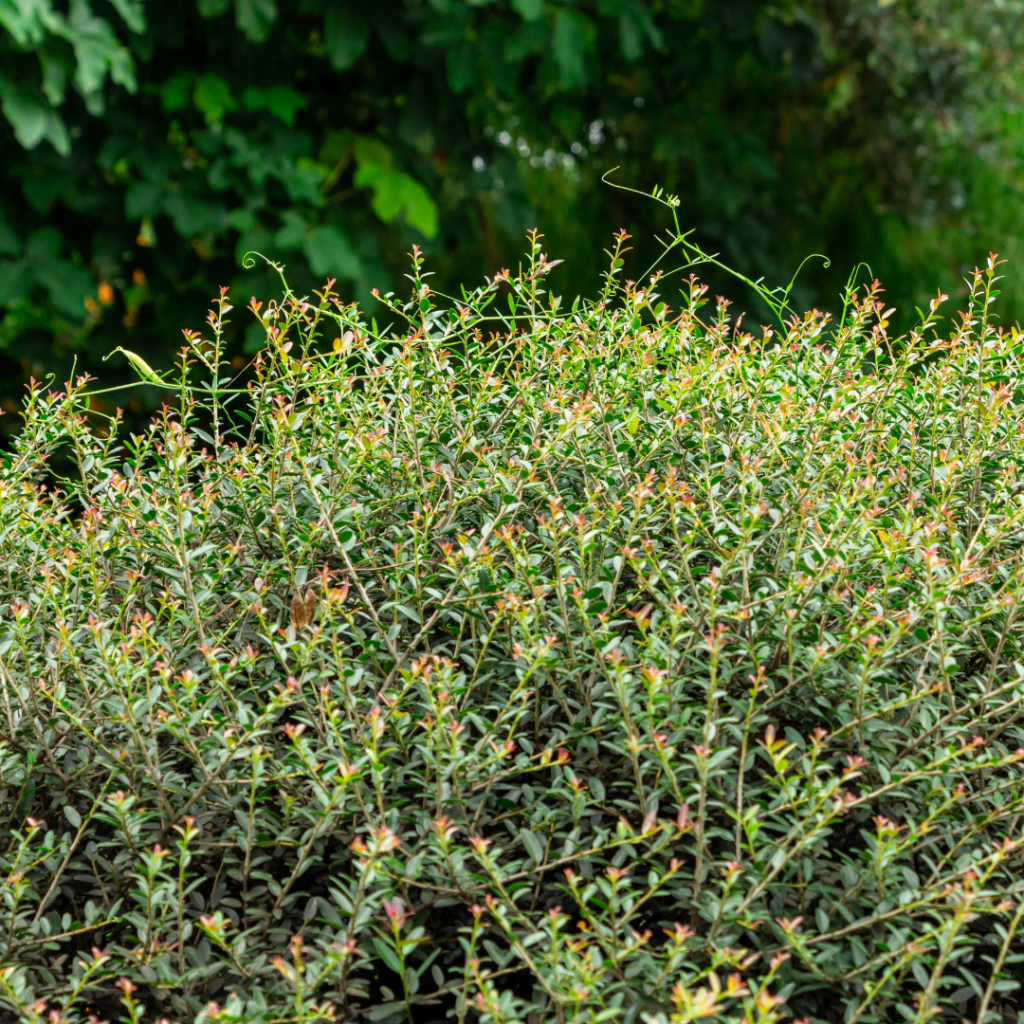
The Yaupon holly is a deciduous shrub that grows up to 20 feet tall. This is a drought-tolerant plant that used to be made into a ceremonial drink by Native Americans. Ideally to be grown in zones 7 to 9.
18. Possumhaw (Ilex decidua)
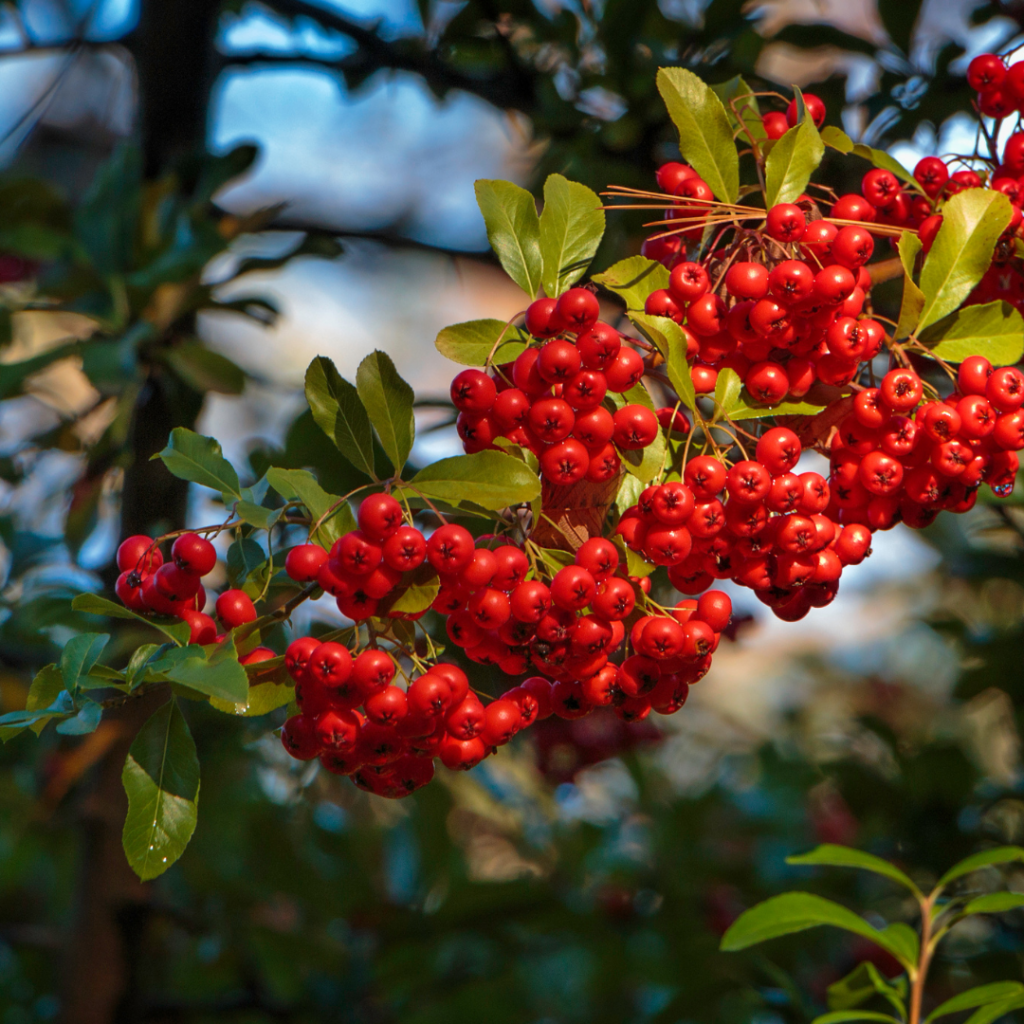
Possumhaw is a large and deciduous shrub that consists of silver to gray twiggy branches. These feature oval-shaped and toothed dark green leaves, which turn from purple to yellow in the fall. Orange to red berries can be seen to grow on this plant.
19. Yerba Maté (Ilex paraguariensis)
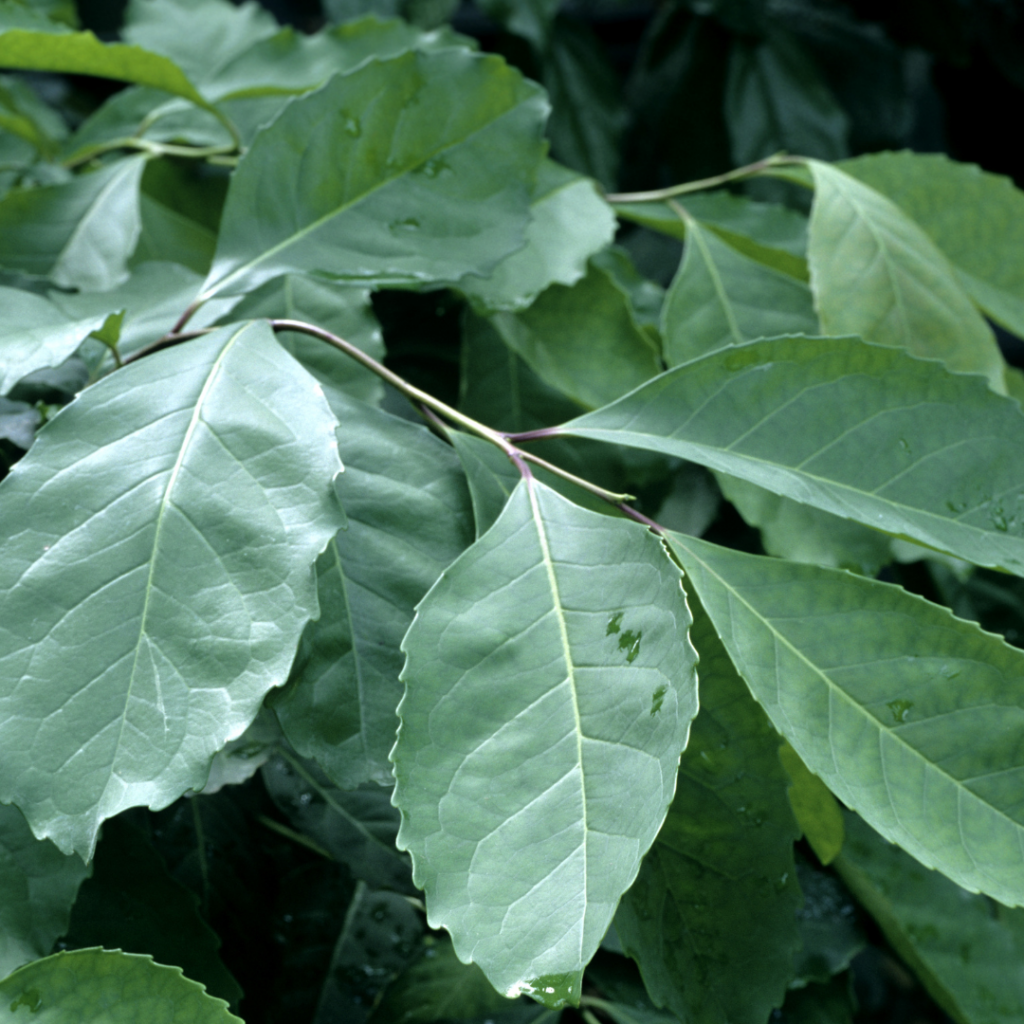
The leaves of this plant have been used to make tea from, as the leaves contain caffeine. This plant enjoys growing in acidic soil and is perfect to grow in USDA zones 9 to 11.
20. Argentea Marginata (Ilex aquifolium)
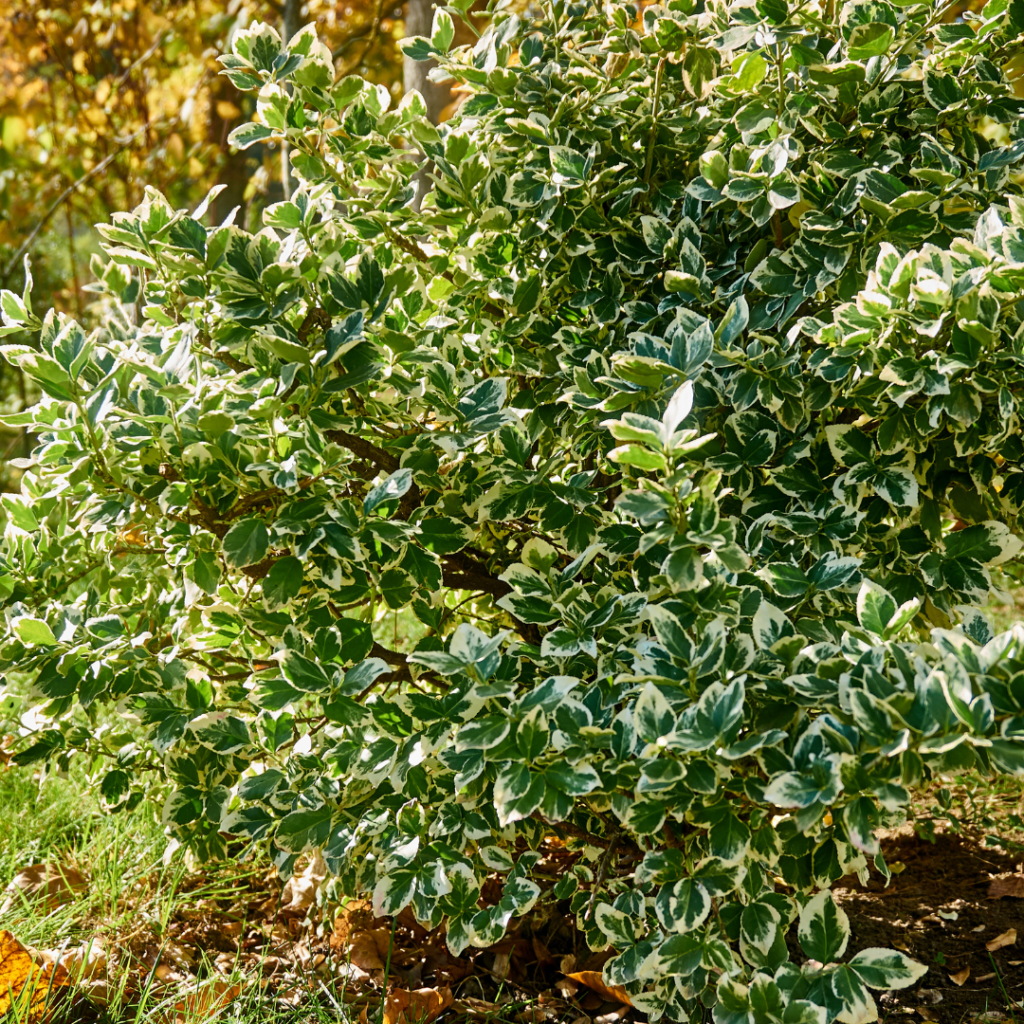
Argentea marginata is a deciduous tree that grows up to 25 feet tall. Its leaves are dark green with a silver edge. It produces bright red berries that grow in clusters. USDA zones 4 to 9.
21. Silver Queen (Ilex aquifolium)

Silver Queen is grown for its attractive foliage. A silver edge is seen on its glossy green leaves. This is a male plant, so it doesn’t produce any fruit, but the stems are a beautiful vibrant purple color.
22. Myrtifolia Aurea Maculata (Ilex aquifolium)
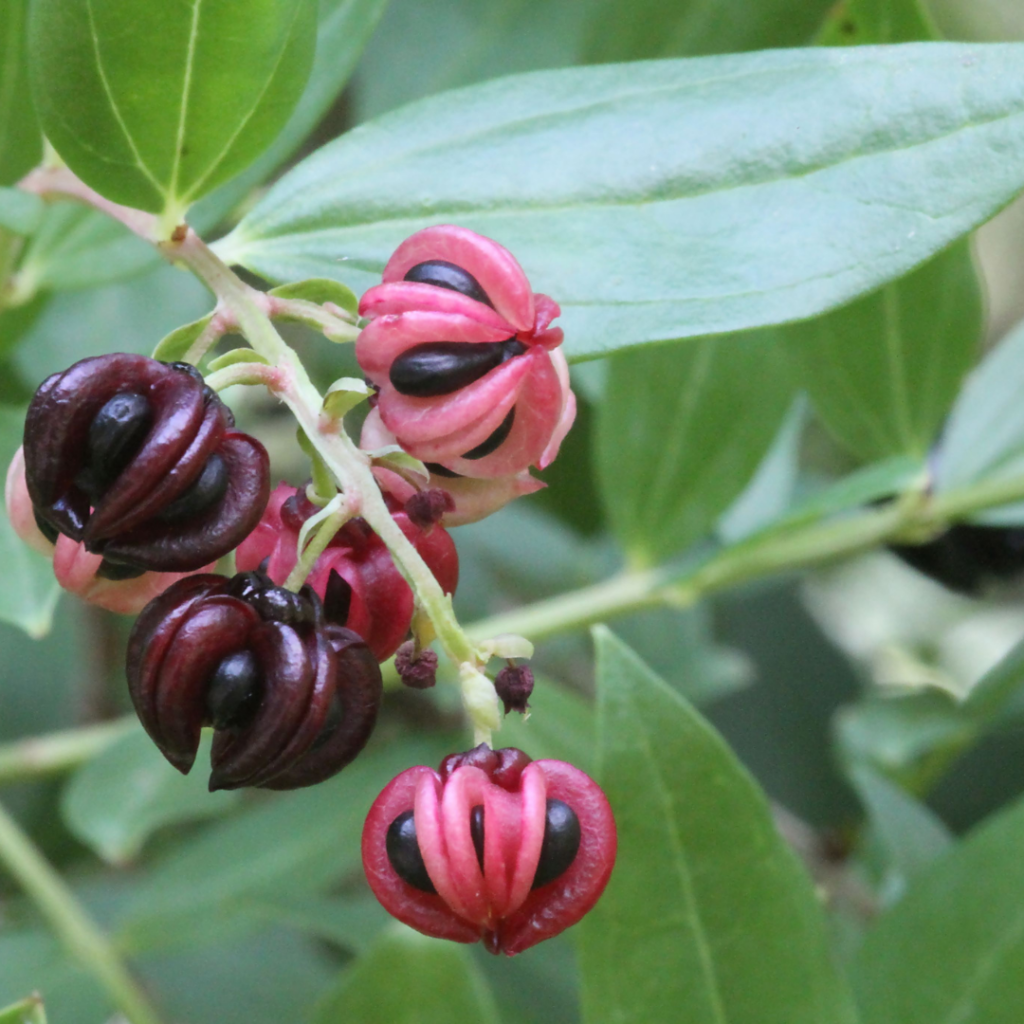
Another male species of holly plant which produces small but distinctive leaves. The leaves are shades of green with blood splashes of yellow. A much smaller plant, which enjoys full sunlight.
23. Silver Mermaid (Ilex aquifolium)

Silver Mermaid can be seen with dark green leaves and bold red berries in the fall. The leaves on this plant can produce various different colors depending on the season.
24. Chestnut Leaf (Ilex x koehneana)
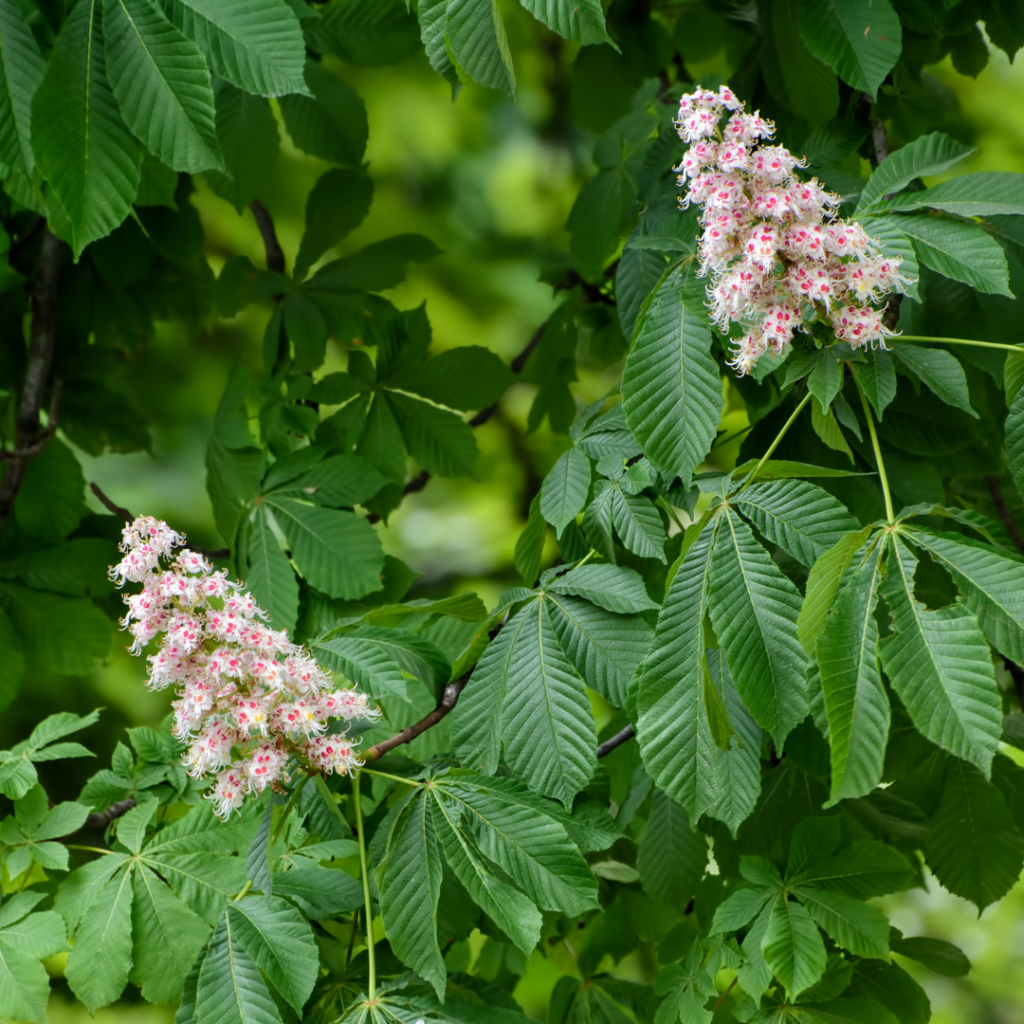
Chestnut leaf is a cross between two other types of holly plants. This has produced a plant with soft yet serrated and glossy leaves. The branches fall down and produce a mass amount of red berries that last for an extended period of time. Can grow up to 25 feet.
25. Hascombensis (Ilex aquifolium)
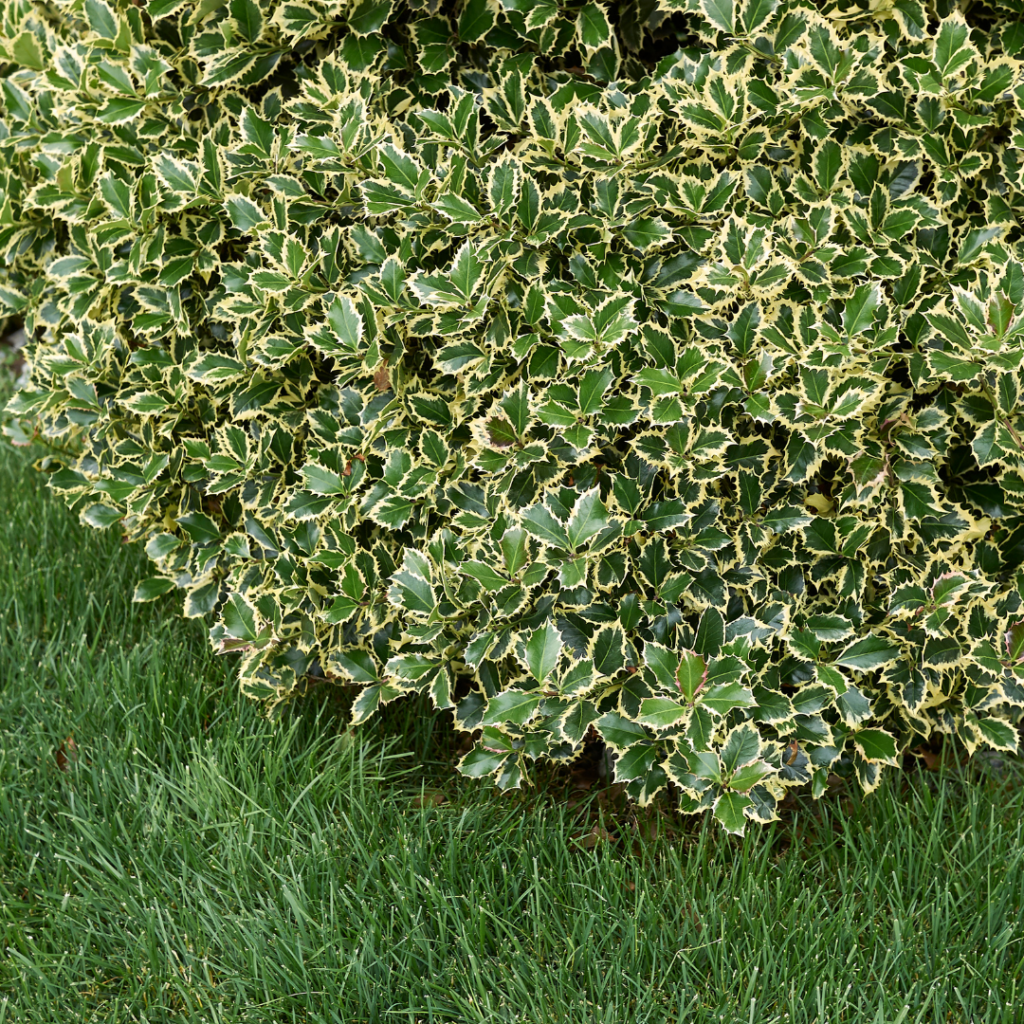
Hascombensis is a strange male variation of holly. It is a slow-growing shrub that has pointed and small leaves. This is the ideal holly plant to grow in pots.
26. Ferox Argentea (Ilex aquifolium)
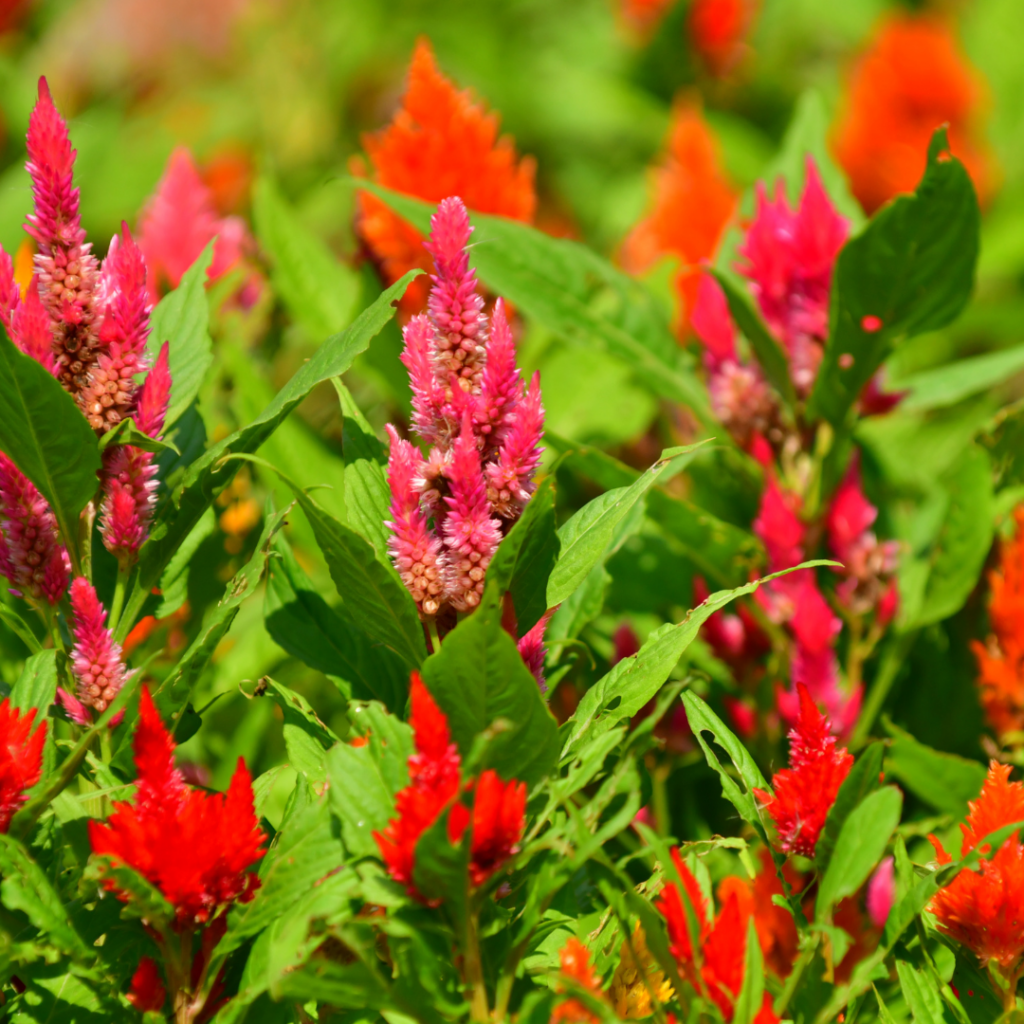
Ferox Argentea is also referred to as Silver Hedgehog Holly. This is due to the spines that are found on the surface of the holly leaves. A very dense shrub that makes a usual hedge for your garden.
27. Small-Leaved Holly (Ilex canariensis)
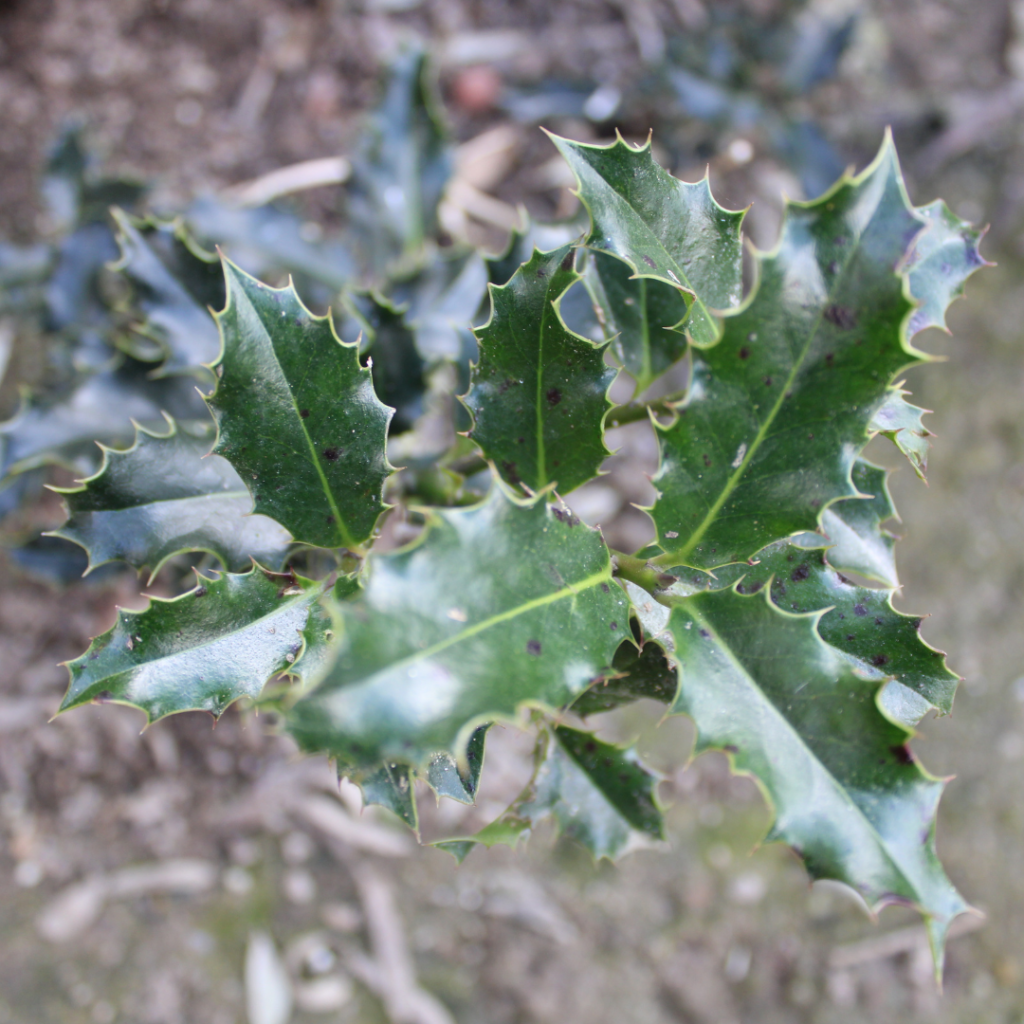
This kind of holly is only found in certain areas, typically near the North African coast. A small shrub that produces flat and smooth green leaves, with clusters of pink to red berries on thick stems. Best grown in USDA zones 11 to 12 with full sunlight.
Final Thoughts
As you can see, there are various holly plants that you can grow in your own garden. Whether your holy plant produces berries depends on whether the plant is male or female.
Male plants don’t produce any berries, while the female plants do. However, the berries that are produced can vary in color depending on the variety of holly plants.
Holly plants are commonly associated with the colder months and Christmas. Now you know more types of holly plants, you can start growing a wider range in your own garden.







